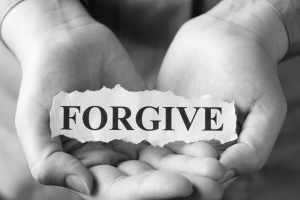
When you get the wrong drink at your coffee shop, how do you respond? Maybe you think, “Oh, they made a mistake. They’re busy, I’ll just have them fix it.” Then there’s the, “I’m never coming here again,” attitude. Researcher Loren Toussaint studied the habits of young people and their attitudes toward forgiveness. Toussaint asked 148 young adults about their forgiving skills and their overall mental health. What he found is that when people hold grudges, it affects their health and increases stress. Forgiveness erases the effects of stress. When you forgive yourself and others for small mistakes and flaws, you lose the connection between stress and mental illness. Forgiveness and Mental health improvements are linked.
The sample in Toussaint’s study is small. There are many more questions that need to be answered about the effects of forgiveness, stress and mental illness. The study is titled, “Effects of lifetime stress exposure on mental and physical health in young adulthood: How stress degrades and forgiveness protects health.” It was published in the “Journal of Health Psychology” in June 2016. The abstract relates: “These data are the first to elucidate the interactive effects of cumulative stress severity and forgiveness on health, and suggest that developing a more forgiving coping style may help minimize stress-related disorders.”
Toussaint has studied forgiveness and mental health before. The Jan. 16, 2015 issue of “International Journal of Psychology” published his study, “The effects of brief prayer on the experience of forgiveness: An American and Indian comparison.” This study examined the effect of prayer on forgiveness, not only looking at the Christian faith, but also Hindu and Muslim Indians. Toussaint found that a “brief prayer is capable of producing real change in forgiveness,” regardless of culture.
What if You Can’t Forgive?
After you’re hurt, it takes time to heal. Inevitably, someone is going to ask you about forgiveness after this pain you’ve experienced. There are societal pressures to forgive people who have hurt you. It might be well-meaning, but in reality, you may not be ready to forgive. It might not even be good to forgive that individual. This doesn’t make you a bad person if you decide that forgiveness is not right for you.
In fact, some psychiatrists believe that individuals who are pressured into forgiveness face deeper depression as they heal. It’s a betrayal of your true emotions. The feeling of inauthenticity can make you feel like you betrayed yourself. What’s even worse, if you tell someone you’ve forgiven them, and you really don’t mean it, you’re now trapped by your words. If you decide to speak out against the person who harmed you, you’re now accused of dredging up the past and not moving on. This is not healing and helpful.
Forgiveness doesn’t happen within a certain time frame. It can’t be forced, nor should it be. Some people do forgive easier than others. Forgiveness can lead to healing, but it’s your decision. You control forgiveness. Whether you choose to forgive or not, one thing you should remember is not to fixate on the negativity. This stagnates you in your life. You don’t have to forgive, but you do need to find peace within yourself.
This study seems to be about forgiving mistakes and errors, not about forgiving major life events. Someone cutting you off in traffic is much different than a friend who steals money from you. Forgive the person who cut you off in traffic and forget about it. You’ll feel better and have less stress. With your friend, take your time to heal from the betrayal and consider all the factors before you forgive and let them back into your life or not. But move on with your life while you’re healing. Don’t let anyone keep you from living a full life.

